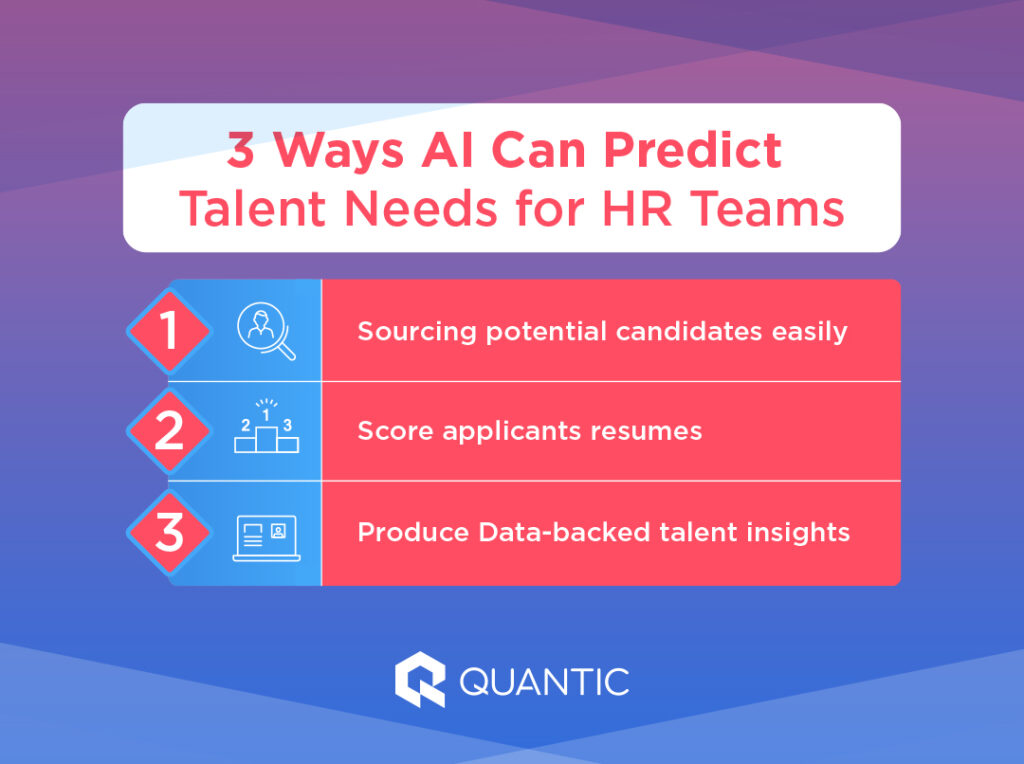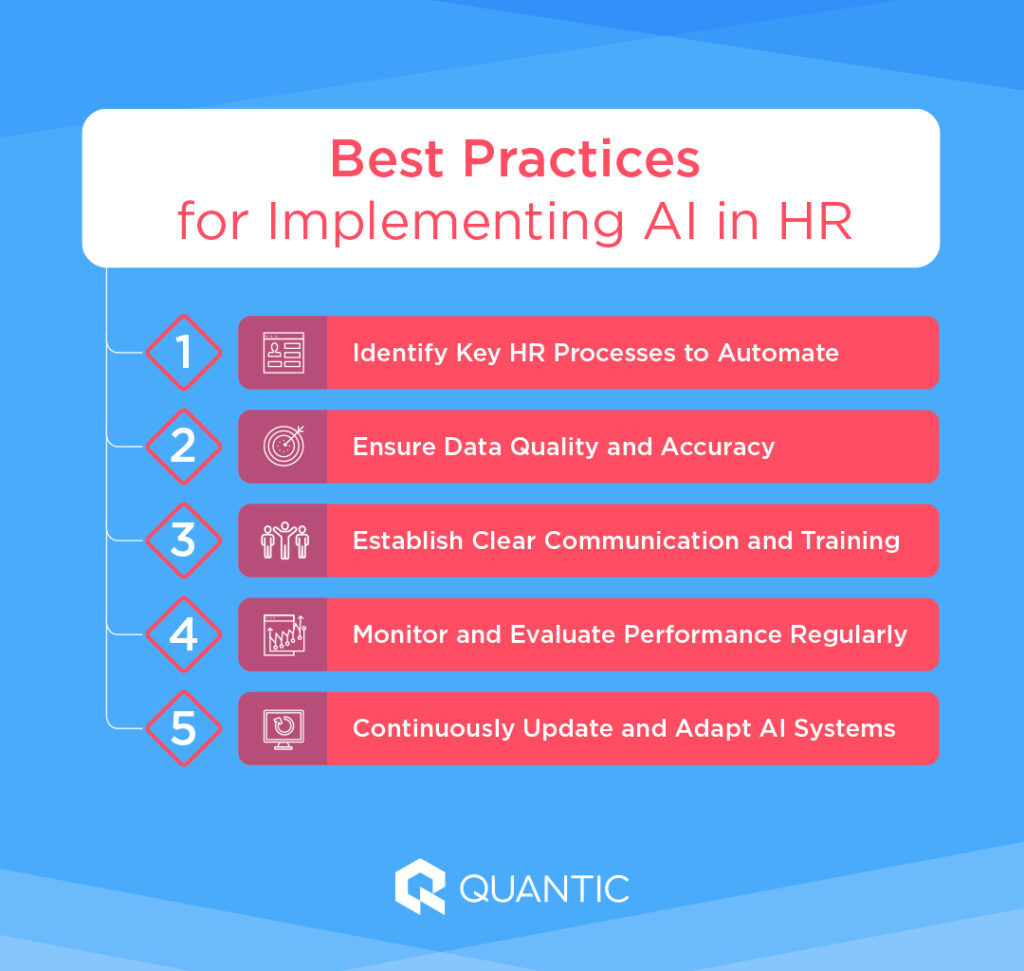BUSINESS FUNDAMENTALS
Unlock the Power of AI in HR: A Guide to Successful Implementations
AI in HR is revolutionizing the way companies recruit, manage and engage their employees.
As the technology advances, it’s becoming easier for businesses to leverage its power to streamline processes like recruiting and performance reviews.
According to SHRM AI is already being utilized in some capacity for HR by 88% of companies worldwide.
With AI in HR, organizations can improve employee engagement while gaining access to valuable insights into how they are performing as a business.
In this blog post we will explore the benefits of using AI in HR along with some potential drawbacks that need consideration before implementing such systems.
Join us on our journey as we discover how leveraging artificial intelligence can help you get ahead!
What Is AI’s Impact on HR So Far?
HR departments have seen a major shift in their operations due to the introduction of AI, allowing them to streamline various manual tasks and become more effective.
AI algorithms enable HR to process a wealth of data swiftly, enabling the discovery of patterns that can be utilized for recruitment, training and staff retention decisions.
Here are a couple of quick examples of AI in HR…
- AI-powered chatbots can also be used to answer employees’ questions about benefits or other topics quickly and accurately.
- AI algorithms can also be used for predictive analytics, helping employers anticipate potential issues with staff retention or productivity before they become a problem
Now, let’s take a look at these in more detail. So you can start leveling up your HR department with AI.
Predict Talent Needs

By integrating AI into their HR departments, leaders can create an inclusive workplace that attracts top talent while also ensuring that important tasks are completed quickly and efficiently. Here’s how…
Sourcing potential candidates easily
Learning capabilities, such as NLP, can swiftly pinpoint personnel who possess the appropriate qualifications for a given position.
This helps streamline the recruitment process by reducing time spent on manual searches through resumes or other sources of information.
Score applicants resumes
Algorithms can be used to score applicants’ resumes automatically so recruiters don’t have to manually review each one individually—saving them valuable time in the long run.
At Quantic a human being still reviews all of our MBA applications. To ensure that we are selecting the highest quality students.
Data-backed insights
Data backed insights gathered directly from employees can help HR teams make informed decisions about how best to allocate resources within their organization.
Real-time analytics can be employed to gauge staff engagement and identify which strategies are most successful at raising spirits or efficiency.
Additionally, predictive analytics can be used to forecast future hiring needs based on current workforce data such as turnover rates or skills gaps within teams—helping organizations stay ahead of changing trends in their industry landscape while preparing for upcoming growth opportunities.
Predicting talent needs with AI can help businesses identify the right candidates for their positions and maximize efficiency in the hiring process.
Enhancing Employee Experience with Chatbots
These automated programs can provide real-time responses to employee queries, streamlining processes like scheduling interviews or identifying workers with certain skills gaps.
Chatbots employ NLP techniques to decipher human speech and reply suitably. This enables organizations to provide personalized learning pathways for their employees, helping them realize their full potential while improving the overall working lives of staff members.
Chatbots may be a game-changer for the interaction between employers and staff, providing quicker feedback times as well as improved customer service.
Potential Drawbacks of AI in HR

While AI has brought significant improvements to HR operations, there are some potential drawbacks to consider before implementation.
Lack of Human Interaction
One primary concern is the possibility of losing the human element of HR due to excessive use of technology. HR is a people-oriented function, and AI cannot replace the human touch that is essential in building trust and developing relationships with employees. Especially when it comes to things like conflict resolution…
Quantic Alumna who specializes in Conflict Resolution and DEI Strategy, shared valuable insights with us. During her discussion, she spoke about her career journey, ways to create an inclusive work environment, and her admiration for the Quantic community.
Bias in AI Algorithms
Another concern is the risk of bias in AI algorithms. Since these algorithms are created by humans, they may contain inherent biases that could lead to unfair recruitment, selection, and promotion decisions. Companies need to ensure that their AI systems are transparent, ethical, and free from bias to avoid any legal or reputational risks.
Dependence on Technology
Relying heavily on AI systems in HR could result in over-dependence on technology. This could pose a problem if the technology fails, leading to delays in critical HR functions, such as payroll processing or benefits administration. Companies need to have backup systems in place to prevent disruptions in their HR operations.
High Initial Costs and Implementation Time
Implementing AI systems in HR can be expensive and time-consuming, requiring significant investments in software, hardware, and personnel. Additionally, companies need to train their HR staff on the new technologies, which can take time and resources.
But doom and gloom aside, let’s explore some successful implementations of AI in HR.
Examples of Successful AI Implementations in HR
Despite the potential drawbacks, many companies have successfully implemented AI in their HR operations, achieving significant benefits. Here are a couple examples:
Unilever
Improving Recruitment with AI – Unilever has automated its recruitment process using AI, saving time and increasing efficiency. The company uses AI-powered chatbots to screen candidates and conducts video interviews with potential hires.
Trying to break into the pharmaceutical industry? Read our guide to discover whether you need an MBA to do that.
IBM
Enhancing Employee Engagement with AI Chatbots – IBM has implemented AI-powered chatbots to improve employee engagement. The chatbots provide real-time responses to employee queries and help to automate HR processes like scheduling interviews and onboarding new employees.
According to Ginni Rometty the CEO, it “delivered a 20% bump in employee engagement scores across the company.”
We have 59 Total IBM Students & Alumni at Quantic. 37% of IBM applicants are also eligible for tuition reimbursement find out more here.
Best Practices for Implementing AI in HR

To ensure successful implementation of AI in HR, companies should follow these best practices:
- Identify Key HR Processes to Automate
Companies should identify the HR processes that can be automated using AI and prioritize them based on their potential impact on the business.
- Ensure Data Quality and Accuracy
AI systems rely on high-quality data to provide accurate insights. Companies need to ensure that their HR data is up-to-date, complete, and accurate to avoid any biases or errors in the AI algorithms.
- Establish Clear Communication and Training
HR staff should receive training on the new AI systems to ensure they understand how to use them effectively. Clear communication channels should also be established to address any concerns or questions.
- Monitor and Evaluate Performance Regularly
Just as companies have a performance management process in place, they should also monitor the performance of their AI systems regularly. This ensures they are delivering the desired results. Any issues or problems should be addressed promptly to avoid any negative impact on the HR function.
- Continuously Update and Adapt AI Systems
AI technology is constantly evolving, and companies need to keep their systems up-to-date to stay competitive. They should also be prepared to adapt their AI systems to changing business needs and evolving HR trends.
Conclusion
AI in HR is a powerful tool that can be used to streamline recruiting, automate performance reviews, and enhance employee engagement.
However, it should not replace human resources completely as AI has its own set of limitations. By understanding the benefits and drawbacks of AI in HR management, businesses can use this technology strategically to improve their operations while still providing meaningful support for employees.
Join Quantic School of Business and Technology to explore the cutting-edge opportunities in AI for HR professionals. Our online education programs will equip you with the knowledge and skills needed to maximize success in this rapidly evolving field.
Related reading: See how Quantic Alumna Ian Saville handled his career transitions and pivots in our student spotlight article.



